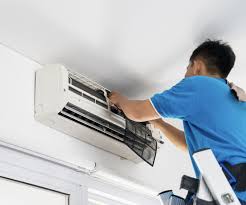Most Dallas, Fort Worth homeowners know and understand that termites can have a devastating effect on their homes and property. But the problem is most of the efforts come too late for some because termite infestation is undetected until damage occurs, and by then, it may be too late to save your home. As a result, the cost may be much higher than if you’d caught it early on.
In fact, over a billion dollars are spent each year in the United States to fix damages caused by these pests. That’s why it’s so important to have a professional termite exterminator check your home regularly for signs of termites. Knowing the signs of a termite infestation can help you spot it early and protect your home from costly damage. In addition, doing so ensures your peace of mind now and keeps you protected in the long run.
Signs of Termite Infestation
Although, as being said, you can detect termite infestations when damage occurs, there are some telltale signs you can look for that may indicate an infestation. When inspecting your home, keep an eye out for the following:
Mud tube: Mud tubes are also called termite tunnels. It is like a pencil-like tunnel made of small pieces of wood and mud located near your home’s foundation, around termite nests, wood structures, and concrete foundations. These mud tubes protect the termites from predators and provide them with a source of humidity.
Discarded wings: As termite colonies matured, winged termites or swarmers looked for new places to establish new colonies. It could signify an infestation if you notice a pile of discarded wings near doorways, windows, or any other place in your home.
Noise in the wall: Termites may be small and hiding deep within the walls, but they still make noise. Termites produce sound as they tunnel through wood. Termites also bang their head against the wall when disturbed to give signs to others. Listen for any faint clicking or tapping sounds indicating termites are at work.
Mold on wood: Mold growth can be another sign of termite infestation as they make damp areas in the walls or wooden structures that cause mold development. So if you notice any mold development on your wooden fixtures, furniture, or walls, it is time to look further.
Droppings: Termite droppings are also called termite frass or termite pellet. They are like small sawdust or wood pieces. Termites produce droppings as they eat and tunnel their way through the wood. If you see any kind of droppings near walls or wooden fixtures, it is time to call a professional.
Damaged wood: Termites often eat wood from the inside out, so you may not see any signs of infestation until your walls and furniture damage is severe. If you notice any soft or hollow wood in your home, it signifies that termite has already done its work.
The Dangers of a Termite Infestation in Your Dallas Fort Worth Home
When termites infest a home, the damage can be devastating. They can cause major structural issues with your walls and ceilings, affecting your home’s stability and leading to costly repairs. Unfortunately, termites love wood furniture, floors, cabinets, and anything else made from wood, so beware of any potential damage in those areas.
In addition to the potential for costly repairs, it can also be a health hazard and dangerous to your health. As termites feed on wood and other materials, they can produce toxic dust that can cause respiratory problems if inhaled. And since the droppings from termites can accumulate over time, it’s important to eliminate the infestation before any major health risks arise.
Preventing a Termite Infestation in Your Dallas Fort Worth Home
When it comes to preventing a termite infestation, prevention is key. Taking proactive steps to ensure your home is not attractive to these destructive pests can help ensure that you don’t have to deal with an infestation. Here are some tips for keeping termites away from your home:
- Keep wood, debris, and other organic material away from your home’s foundation.
- Seal cracks and crevices in your walls, ceilings, windows, and doors.
- Eliminate any sources of moisture, such as excess water in gutters or pooling water around your home’s foundation.
- Have your home inspected by a professional termite exterminator, at least once a year.
- Consider having a professional termite barrier system installed around your home for added protection.
Conclusion:
Termites may be small, but the damage they cause can be huge. Taking proactive steps to prevent termite infestation and regular inspection by a professional can help protect your home from these destructive pests. If you suspect an infestation in your home, it’s important to take action as soon as possible before the damage becomes too extensive.
